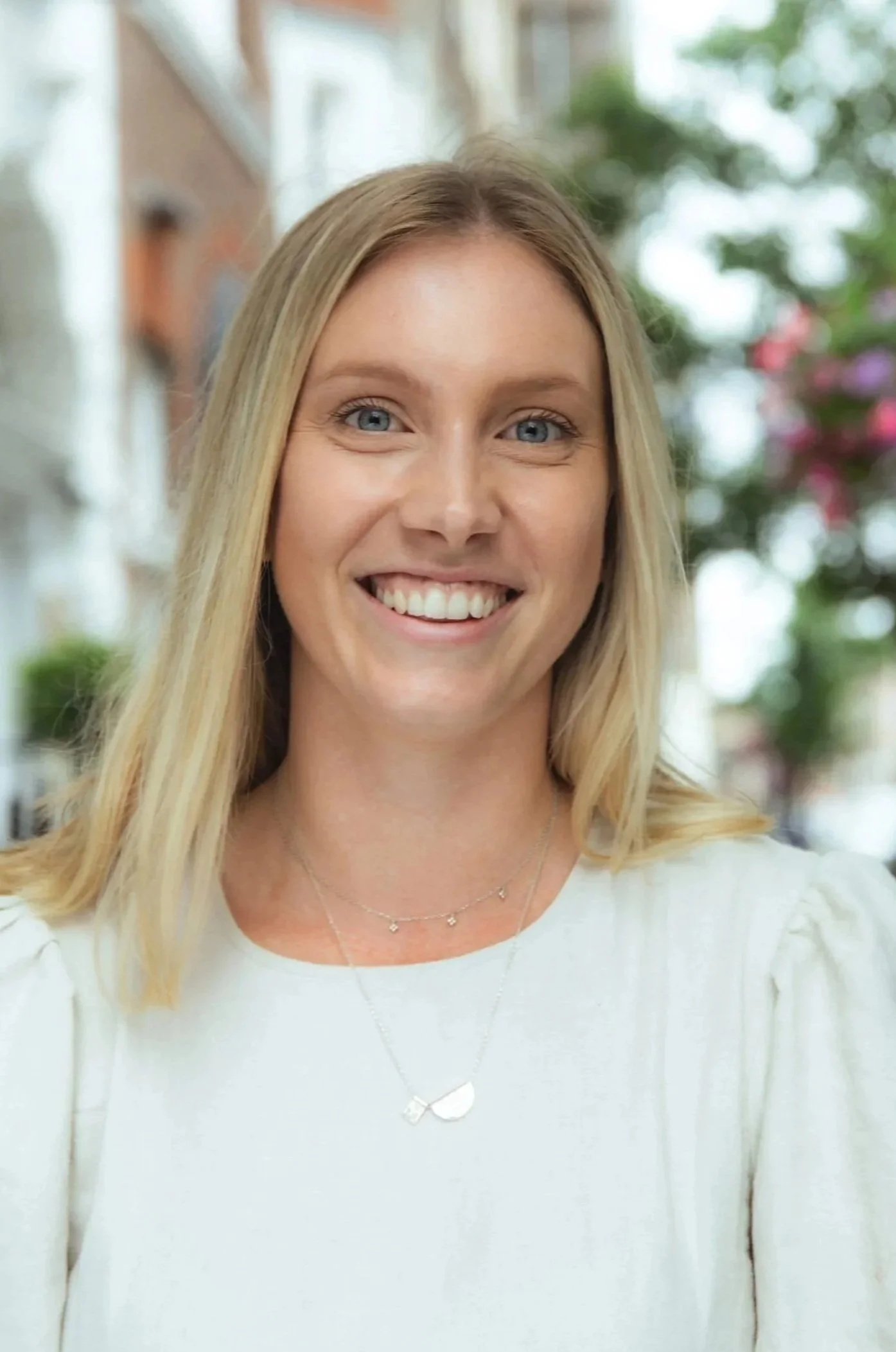What to Expect at an Initial Virtual Consultation
LCRH London clinic manager Georgia Elvery has helped thousands of patients during her career.
Here is her guide for what to expect at your initial consultation, the most commonly asked questions she receives from patients, and her tips for how to best prepare for your appointment.
What Happens at an Initial Consultation?
Part One
Pre-Consultation Visit
You will be invited for a pre-consultation Nurse-led visit at one of our clinics. During this visit you will have a pre-assessment scan and AMH blood test if you have not had one in the past 6 months, and we will gather relevant information for Dr Chapman, Dr Dear, or Dr Kotrotsou to review prior to your appointment.
Part Two
The Consultation
Your Consultation with Dr Chapman, Dr Dear, or Dr Kotrotsou will be held by virtual appointment. This will be scheduled around two weeks post pre-consultation visit, when we have access to any test results and our consultants have reviewed your individual situation.
Part Three
The Follow-Up Call
Following your consultation, a member of the LCRH Admin team will reach out to you by telephone to communicate any next steps discussed during your consultation. At this stage patients are invited to join our patient portal and you will be sent login information.
Shown: Dr Chapman (above top), and LCRH London Clinic Manager Georgia Elvery (above).
How do I book a Consultation?
The first step to book a consultation at LCRH is to complete and submit the following form. A member of our team will call you with details of our current and upcoming availability. You can also use the form to simply ask for an informal chat with an experienced member of our team - this can be helpful if you are just starting to explore your fertility options, looking to move to LCRH from another clinic, or want some help to decide the best type of appointment to book.
Some Very Commonly Asked Questions:
-
Georgia: Your consultant will listen and learn about your fertility journey to date. This will include reviewing tests and relevant medical history to be able to provide advice and guidance to best assist your with your fertility journey in the future. They will also review the pre-appointment scan that assessed the uterus and ovaries.
-
Georgia: No, you don’t need to repeat tests that you had done at the NHS or other clinics if they have been performed within 6-12 months. Please bring all test results with you. There is no need to repeat any recent tests you have had performed unless there is a clinical indication. At LCRH we only perform tests that we see as beneficial or necessary for your treatment.
-
Georgia: It is always helpful to provide us with relevant history and medical records that could be beneficial for the doctor to discuss with you and review in your consultation. At LCRH we recommend an up to date AMH (Anti-Mullerian hormone) blood test to be performed (within 6-12 months) ahead of an Initial Consultation. We also recommend an up to date Semen Analysis if relevant. We can arrange this for you prior to your consultation if you wish, so that you can get the most out of your time with the doctor.
-
Georgia: If you have a partner we encourage you both to attend together to get the most out of the consultation in this shared experience. We understand this can be tricky with work and life commitments therefore we can always dial them in via a zoom link or similar so they can still be present and feel a part of the process. If you are planning your journey as a solo parent you can bring a trusted friend or you can come alone - the LCRH team are here to support you on this journey.
-
Georgia: We ask for Day One of your menstrual cycle, so that the appropriate care team can begin planning for treatment or book you in for a scan as required. If you wish to commence a monitoring cycle, we typically require you to have a baseline scan on days 1-3 of your cycle - if we don’t know this at the time, then we may be set back by a month on certain treatments.
-
Georgia: A trans vaginal scan can be used for checking abnormal vaginal bleeding and menstrual pains, monitoring pregnancy, diagnosing conditions like cysts, fibroids and endometriosis and more. It can be a little uncomfortable but it is not considered painful. To prepare for a trans vaginal scan please come with an empty bladder. It is also helpful to wear clothing that can be removed easily from the waist down.



